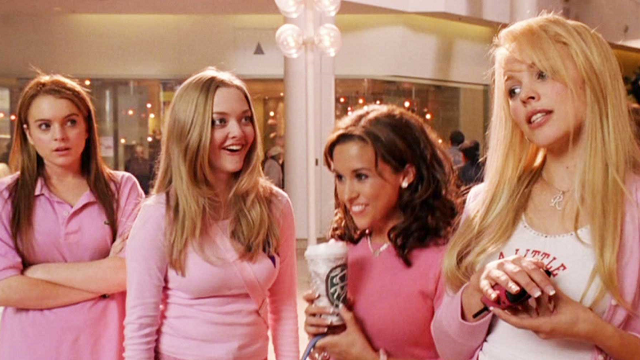Movies are intensely personal. What may talk to one person may be inert to another and may be ludicrous to a third person. This year, The Neon Demon and Nocturnal Animals generated widely divided opinions depending on the viewer. For instance, I think The Neon Demon is the best film of the year, with strong formal visuals driven by a drumming soundtrack that generates an emotional approximation to Dario Argento’s mid-period horror movies. Others find the movie dull with a thin plot. A different group thinks the film is sexist and refuses to judge men for their participation in the story. And, still others find the film ludicrous and out of control.
But, then there are the movies that generate immediate impassioned responses in wide swathes of people. 2013’s Gravity received widespread acclaim among critics and audiences alike, with most expressing awe at the technical virtuosity and finding deep meanings in a primarily visceral experience. People who dissented during its theatrical release were shot down by the masses and accused of being contrarians who were exploding minor flaws into major problems just to hate what everybody else liked. “Haters gonna hate.”
The latest movie that has earned a widespread impassioned response is La La Land, which speaks to a bunch of people, while a small group of dissenters are completely dead inside. Regardless of how right or wrong anybody is, what I’ve been noticing is people labeling any dissenters as having a “hot take,” immediately negating that dissenter’s opinion regardless of its validity. If somebody disagrees with the politics of La La Land, it becomes a “hot take.” If they don’t like the aesthetic, if they don’t like the dancing or singing, if they don’t like the message or whatever, their dissent becomes a “Hot Take.”
But, let’s go back to the beginning: What is a Hot Take?
- Salon’s Simon Maloy: “a hot take is a piece of deliberately provocative commentary that is based almost entirely on shallow moralizing.”
- Gawker editor Alex Pareene defines Hot Take as “content related to some sort of news (or pseudo-news), despite having no original reporting or intelligent analysis to add.”
- Jezebel’s Jia Tolatino calls it “a piece of writing that is (1) primarily gestural and (2) primarily based on reaction—both the illusory need to react, and the idea that a reaction is worth paying attention to simply because it exists (a common and bad idea, also frequently found clinging to the opinion).”
- Washington Post’s Philip Bump says a hot take is not necessarily intentionally contrarian, but it is written in such a way that you can tell it’s a bit of a troll. There’s an implied artificiality to it. And also, it’s a crappy piece.”
According to the New Republic, the Hot Take has a long history in sports writing, but really came into its modern usage about 5 years ago. It became a code word for shallow click bait that usually looked at an event from a particularly skewed, shallow, or narrow point of view. In a sense, it was a performative opinion that mainly sought attention over conversation.
But, then “Hot Take” became overused. In that New Republic piece, they quoted Gawker editor-in-chief Max Read:
It’s a useful phrase to describe a scourge that became a scourge almost as quickly as it became widespread. It’s the perfect media phrase because it allows the person who uses it to 1) dismiss something 2) contemptuously using 3) a bit of insidery jargon.
And now, Hot Take has taken over Film culture.
Let’s go back to La La Land. It’s a movie made by a white person about white people trying to find romance. But, one of those white people is trying to save jazz, a musical form based in the African-American experience. To make matters worse, he wants to save it from the hands of a jazz-pop star John Legend, and also wants to open up a fried chicken joint to save it. The racial elements of the plot go largely ignored while the movie sides with the white dude. Even if the jazz and fried chicken and waffles dates back to 1920s Harlem with Dickie Wells’ Supper Club among others, Chazelle ignores that it was a black-owned business.
As such, some people have had problems with Chazelle’s ignoring of the racial dynamics of the movie. Bloggers and film critics wrote up pieces about La La Land‘s complicated relation to the racial elements within the movie; for a movie that’s supposed to be color-blind, it sure decided to make two beautiful white people the focus of the movie. But, because La La Land spoke to people on a deep emotional and personal level, any criticism became a “Hot Take” or “Besides the point.”
This isn’t reserved to just La La Land. I’ve seen “Hot Take” aimed at pieces about Nocturnal Animals being a sleazy movie about a guy who writes a book to get troll his ex-wife out of revenge. Or, aimed at criticism of Silence being yet another Martin Scorsese movie about dudes and faith. Regardless of the validity or shallowness of these opinions, the Hot Take criticism was employed as a trump card to dismiss any opinion that didn’t adhere to an imagined critical monolith.
There’s plenty of room for discussion and disagreement without resorting to the “hot take” dismissal. Just because somebody doesn’t like what other people like, it doesn’t necessarily mean they’re writing or talking in bad faith (it also doesn’t mean they’re always having a good faith discussion). Let’s strive to be better.

